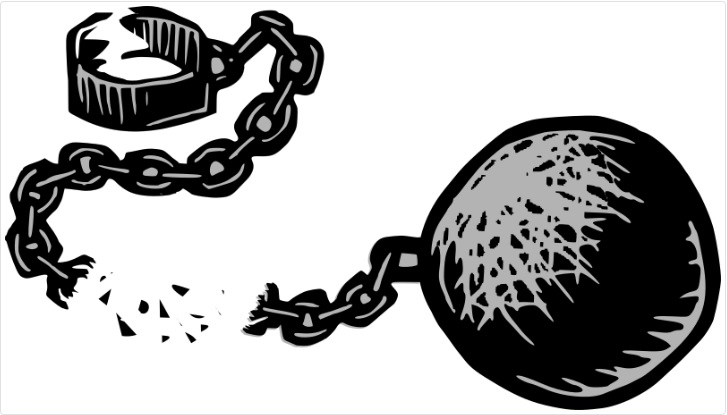On paper, the economy is great! But are you feeling it? Many Americans aren’t.
Perhaps you heard that the economy is the best it’s been in ages. In the third quarter, GDP grew by an annualized 4.9%, driven by increased consumer spending. Employers added nearly 340,000 jobs in September. Wages are slightly up in a tight job market, increasing faster than inflation, giving households more purchasing power and proving the system’s resilience despite the Fed’s interest rate hikes. The economy is great! Are you feelin’ it?
It doesn’t appear that most of us are feelin’ it.
Right now, Americans are having trouble keeping up with their bills. According to recent polling, 2 in 5 Americans are skipping or delaying health care or failing to fill prescriptions because they can’t afford to pay medical costs. One in 3 Americans currently owe money to providers for past health care expenses, with nearly half of those polled owing more than $2000. Even those who buy insurance through the Affordable Care Act’s exchanges or who qualify for Medicare or Medicaid are struggling to pay their share. Skipping necessary care can lead to a downward spiral that results in declining health, worse outcomes, and affects every other thing we need to do to get through life.
People are skipping out on car payments, too. As of September, 6.1% of subprime borrowers were at least 60 days late on their auto loan payments, the worst since tracking started in 1994. To be fair, used car prices have been absurdly high since the pandemic broke the car market. With fewer cars made and sold while most of us were afraid of dying in an ICU, that scarcity has now rolled down to the gently-used car market, leading to car payments of $1000 or more per month. With land use policies that require a car in most places, it’s impossible for many people outside of those ideal, walkable urban areas to go without one. Doing so severely limits our economic opportunities, strains our social relationships, or both.
Last year, the Fed upped interest rates to limit inflation by hitting the economy on the head with a brick. Those rates continue to break our budgets, with new car loans at 10.48% interest in September, with used car loans coming in at 11.4%. Whether it’s car loans, mortgages, medical debt, student or consumer loans, the interest is killing us.
If the economy is great, it’s because we’re digging deeper to pay for it all. Americans have burned through their surplus of pandemic savings, household expenses continue to exceed earnings, and when emergencies inevitably arise, dipping into their 401(k) accounts more than they used to. Borrowing from the future is only a reasonable option when future conditions are guaranteed to be better than the present. The likelihood of that being the case is, let’s be honest, pretty low.
Despite the high cost of necessities and the way more Americans are breaking their budgets to buy them, the Fed is still keeping interest rates high. The economy is great, too great, and what we apparently need, from the Federal Reserve’s perspective, is for more people to be impoverished and immiserated so they can no longer afford to buy so many things, thereby lowering demand and reducing inflation. That way, money stays valuable, which is great for people with a whole lot of money.

Happily, however, not everyone thinks it has to be this way. In recent years, innovative, socially minded individuals and organizations have stepped in to relieve debts the old fashioned way, by forgiving them.
With Biden’s massive $400 billion student loan forgiveness initiative struck down by the Supreme Court, the President has still been able to streamline, adjust, and arrange existing forgiveness programs resulting in the erasure of $127 billion in student debt for 3.6 million Americans.
Debt Collective, an activist group opposed to student loan debt, also took action recently, working with Rolling Jubilee Fund, another anti-debt organization, to buy off $10 million in face value student loan debt for $125,000 from Morehouse College in Atlanta. Then, they struck a deal to write off that debt as paid in full, eliminating the balance for 2,777 accounts. Previously, Rolling Jubilee Fund did the same for 462 students at Bennett College in Greensboro, NC. Those are people who will now be likelier to start families, buy homes, or feel more free to take entrepreneurial risks than those who continue to be saddled with relentless student debt.
Similarly, in recent years many socially progressive religious congregations have decided to take the principle of debt forgiveness into the real world as both a form of reparations and as a way to live their faith. About 800 Jewish, Christian and Muslim groups have worked with RIP Medical Debt, a nonprofit dedicated to buying up medical debt from collections agencies and various third parties for pennies on the dollar and then writing it all off. This can be life-changing for people shackled to insurmountable debt, and it can also be remarkably healing for those who donate and facilitate the process of lifting the burden from another’s shoulders.
“It’s a wonderful way to take ancient biblical values and actualize them,” Rabbi Ari Hart told The Washington Post earlier this year, after his congregation, Agudath Jacob Synagogue in Skokie, IL, teamed up with two predominately Black churches in Chicago to raise money for medical debt relief.
If the economy is great, it’s because those who are well off are continuing to do well and feel confident that they won’t hurt too much in the future, either. As for the rest of us, we have to stick together and help our neighbors when we can. We can’t wait for the government or private businesses to fill our needs. If we want something better, we’ll have to make it ourselves.
Related: Inflation, Recession and Human Sacrifice

Join the conversation!